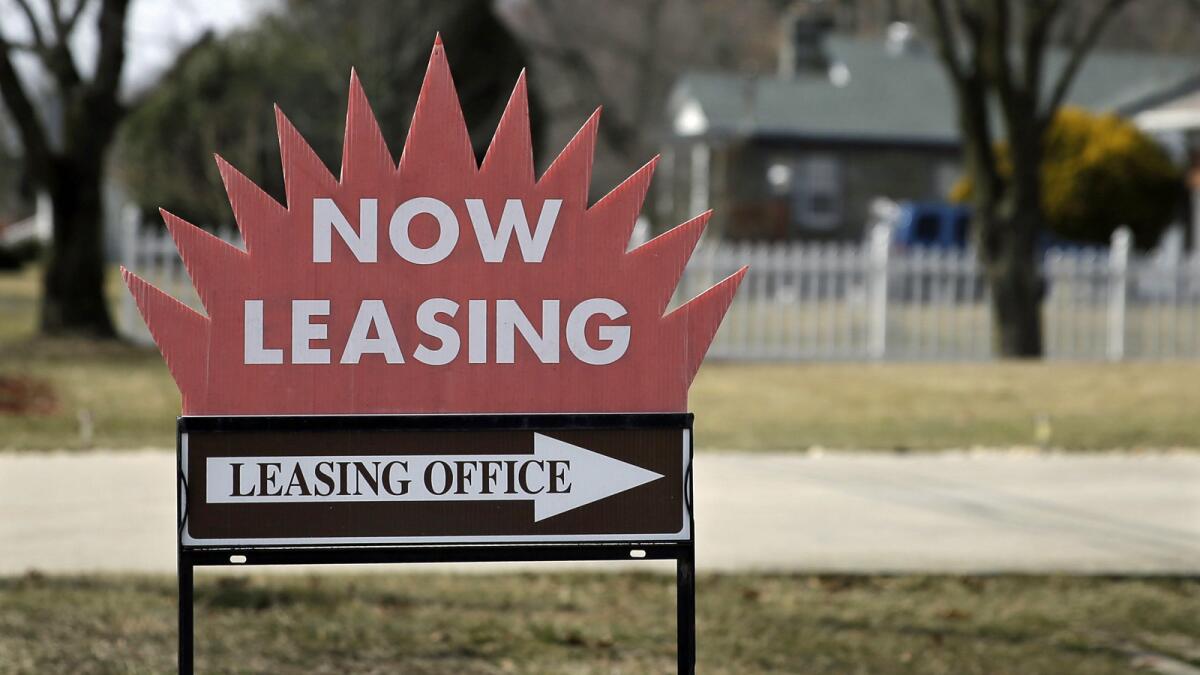Is a violent ex-boyfriend reason enough to terminate a lease early?

- Share via
Question: I have recently been through a terrible experience with my ex-boyfriend and want to know if there is some way to get out of my lease early. My ex and I moved in together about six months ago. We signed a one-year lease.
Unfortunately, shortly after we moved in together, my ex became physically abusive toward me. Things kept escalating and I finally got a protective order against him, but I am still scared because he obviously knows where I live and his name is on the lease too.
For my own safety, I really think it would be better for me to move. I have told my landlord that I want to leave, but he said if I leave I will have to continue to pay rent until the end of the lease unless he can find someone else to rent the apartment. I can’t afford to pay rent on two places at once, but I don’t feel safe here. What can I do?
Answer: The short answer is that you can terminate your lease early without being responsible for additional rent whether or not your landlord likes it.
In California, survivors of domestic violence, sexual assault, stalking, human trafficking, elder abuse or dependent adult abuse have special protections. One of these protections allows a survivor to terminate a lease before it ends. Normally a tenant who moves out before the end of a lease agreement can be held responsible for all the rent that would be owed until the lease expires, and a landlord can sue for this money. California Civil Code 1946.7, however, allows a survivor to give the landlord a 14-day notice of his or her intent to break the lease, move out and no longer be required to pay rent. The Civil Code provides this protection in the following circumstance:
- You rent and have a lease;
- You have a restraining order/protective order, a police report or a signed document from a certain kind of professional; and
- You need to move because you, or a family member living with you, are the victim of domestic violence, sexual assault, stalking, human trafficking, elder abuse or dependent adult abuse.
As long as your protective order is no more than 180 days old, you should notify your landlord in writing that you are a victim of domestic violence and that you want to end the lease. You must give a minimum of 14 days’ notice. You can move out any time after giving notice, but you will be responsible for rent up to 14 days after you give notice.
Current is fair housing director for Project Sentinel, a Bay Area nonprofit. For more information, contact Project Sentinel at 1-888-324-7468, [email protected], visit www.housing.org or contact your attorney or local housing agency.
More to Read
Inside the business of entertainment
The Wide Shot brings you news, analysis and insights on everything from streaming wars to production — and what it all means for the future.
You may occasionally receive promotional content from the Los Angeles Times.







